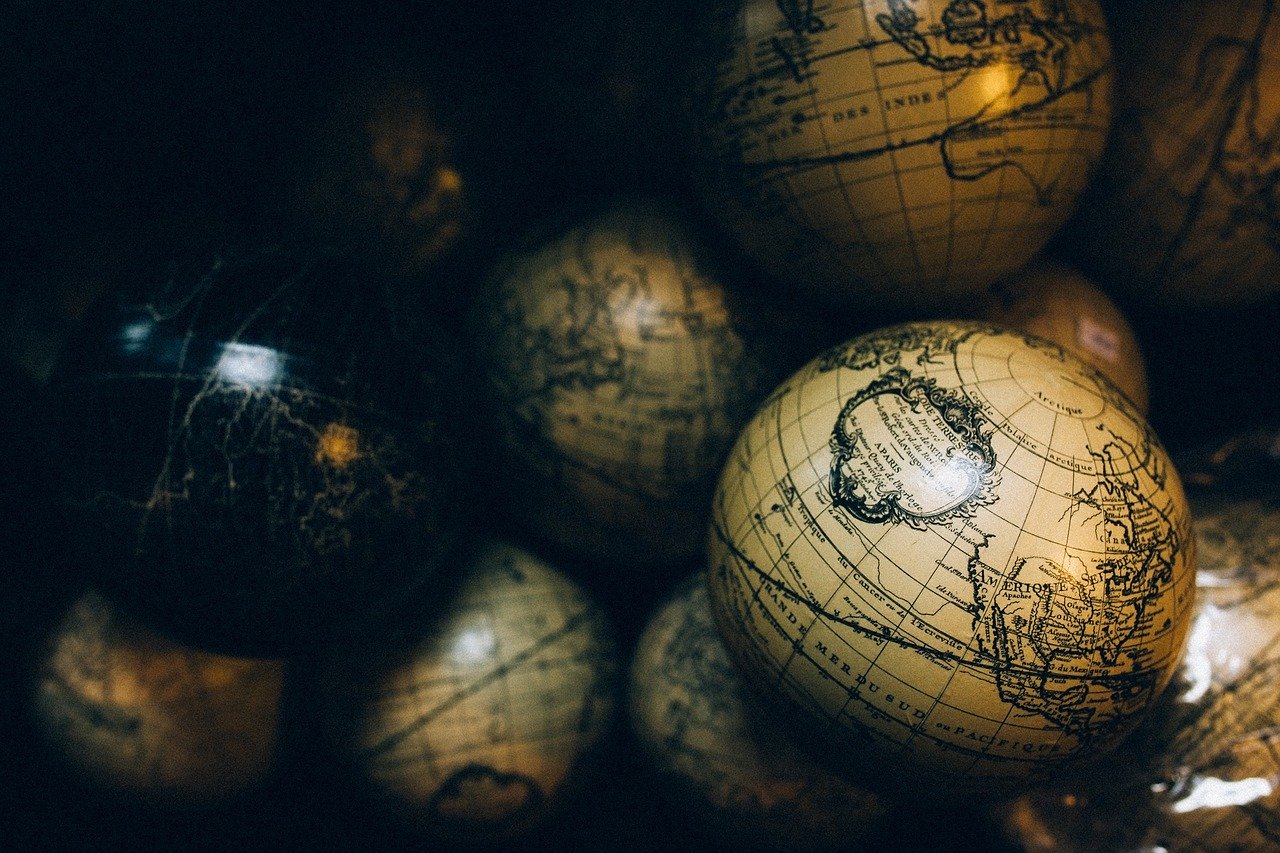 Hello Evan,
Hello Evan,
I have a quick question which was forwarded to me by a friend. It really got me thinking. According to Molinism, God has knowledge of all ways the world could have been (counterfactuals). He knows what would happen no matter what you choose to do, etc. But doesn’t this imply that there are possible worlds which do not meet God’s plan? Let’s say God wants to bring about a world with the most number of people who would freely choose Him, and this is that world which is why God actualized it. Wouldn’t this mean that there are possible worlds that God knows of which does not bring about the most number of people?
Or another example is Jesus’ death. God foreknew which people would freely vote for Jesus’ crucifixion hence why He chose to actualize the world in which these people are in the Sanhedrin. But wouldn’t this also mean that there are possible worlds God knew in which other people could have been in the Sanhedrin and they wouldn’t have voted for Jesus’ death? Doesn’t this imply God is fallible?
Thank you for reading my question! God bless you.
- Sam

Some Set Up For Other Readers
When wanting to know if someone affirms Molinism, Dr. Tim Stratton of FreeThinking Ministries usually poses what he calls ”The Cosmological Quiz”
Question 1: Is it true that God exists in a state of aseity logically prior to creating the universe (and thus without the universe)?
Question 2: In this state of aseity, is God omnipotent? If so, does he possess the power to create creatures with libertarian freedom (even if He never does create them)?
Question 3: In this state of aseity, is God omniscient? If so, does he possess the knowledge of what these libertarian free creatures—within His power to create (even if He never does create them)—would freely do?1
And Tim Stratton said that if one answers “no” to any of these questions then they might be a heretic! On the other hand, if people answer “yes” to all of the above, then that means that they are Molinists!
Stratton explains “This is because if one affirms that God is both omnipotent and omniscient in the state of affairs logically prior to the creation of the universe, then some flavor of Molinism must be true. God would possess the power to create libertarian free creatures (even if He never creates them) and God would “middle know” exactly how these free creatures would freely think, act, believe, and behave logically prior to His creative decree.”2
Thus, having middle knowledge logically flows from the omnipotence and omniscience of God. Now, we know God is omnipotent and omniscient for two reasons; 1 reason is natural theology (The Modal Ontological Argument for God’s Existence). The other is scripture. In Luke 1:37, Gabriel says to Mary that nothing is impossible with God (and ergo, He can cause her to be pregnant despite the fact that Mary was a virgin). In Matthew 19:26, Jesus said “All things are possible with God.” Jeremiah 32:17 says “Ah, Lord God! It is you who have made the heavens and the earth by your great power and by your outstretched arm! Nothing is too hard for you.” So The Bible is pretty clear that God is omnipotent. It’s clear that He’s omniscient too, for example, Psalm 139:1-4 says “You have searched me, Lord, and you know me. You know when I sit and when I rise; you perceive my thoughts from afar. You discern my going out and my lying down; you are familiar with all my ways. Before a word is on my tongue you, Lord, know it completely.” and Proverbs 15:3 says “The eyes of The Lord are everywhere, keeping watch on both the evil and the good.” God even knows what’s in our hearts (1 Samuel 16:10, Jeremiah 17:10).
So it would behoove anyone who believes that God is a Maximally Great Being and/or believes that The Bible is true to believe that God possesses middle knowledge.
As a result of possessing middle knowedge, God knows what every free creature would freely do in any circumstance they could find themselves in. In other words, God knows all feasible worlds. This is different, Sam, from possible worlds. Knowledge of possible worlds (knowledge of everything anyone could do, what is possible, what is necessary) belongs to God’s natural knowledge. And as I’m sure you know, God’s free knowledge (synonymous with foreknowledge) is a result of God’s free choice of which feasible world to create. Hence, why it’s called free knowledge. Middle knowledge comes in between natural and free knowledge. God middle knows which of the possible worlds are feasible for Him to create and which ones aren’t. For example, as I have said in my treatments on the problem of evil, there is a logically possible world in which no one ever freely chooses evil and instead always freely chooses to do the good. However, it may be the case that such a world is infeasible for God to create, if in any world God could actualize, at least some free creatures always would choose evil.
Does The Existence Of Other Possible/Feasible Worlds Make God Fallible?
Not at all! The mere existence of feasible worlds in which God’s will would be thwarted doesn’t render God infallible. God knows which worlds would and would not achieve all of His intended goals. He took everything in every world into account before deciding world would be the actual world, such as 1; there’s libertarian free will, and ergo love is possible, 2; whenever evil and suffering occurs, good comes out of it either quickly or eventually, 3; Jesus died for the sins of the world, 4; as a result of 3, eternal life is given to many, 5; which world has the optimal ratio of saved to lost, etc.).
In fact, Molinism is the only way that I can see in which we can have a God who, as scripture says, cannot be thwarted in his goals (Job 42:2, Proverbs 21:30, Isaiah 14:27) and yet also have humans with genuine libertarian free will. We can have free will and make all kinds of free decisions, but we can never thwart God’s will because God knows every decision we could, would, and will make in His natural, middle, and free knowledge.
Yes, there are “possible worlds which do not meet God’s plan” but that shouldn’t bother the Molinist, for our God is smart enough to not choose to actualize those worlds.
You wrote ////Or another example is Jesus’ death. God foreknew which people would freely vote for Jesus’ crucifixion hence why He chose to actualize the world in which these people are in the Sanhedrin. But wouldn’t this also mean that there are possible worlds God knew in which other people could have been in the Sanhedrin and they wouldn’t have voted for Jesus’ death?”//// —
You’re quite right. The crucifixion of Jesus was deliberately planned by God, His foreknowledge played a role in the matter, but it was wicked men who put Jesus to the cross. Molinists say that God knew that if Caiaphas was high priest in the first century, then he would freely condemn Jesus on grounds of blasphemy and he would freely take Him to Pilate for execution. He knew that if Pilate was prefect in the first century, then he would freely comply with the demands of the crowd. And God knew that if Judas was born in the time and place that he actually was, then he would become Jesus’ disciple for a while and would freely choose to betray Jesus to the Sanhedrin. God knew how all of these people would behave if He placed them in the time and places He did. God decreed the whole thing, but the libertarian freedom of the actors remained completely intact.
And so, unlike what our Calvinist friends would like us to believe, they don’t have a monopoly on the Acts 2:23 which says” This man [Jesus] was handed over to you by God’s deliberate plan and foreknowledge; and you, with the help of wicked men, put him to death by nailing him to the cross.”
But what if these people decide to do the exact opposite of what they actually chose to do? What if, Pilate decided to release Jesus or the Sanhedrin believed in Him? We shouldn’t fear, as you seem to do, that God somehow got lucky that all of these people just happened to do what they did to get Jesus on the cross. If Pilate, Judas, the Sanhedrin, or anyone else (heck, anyone throughout all of salvation history which lead up to that moment) had made decisions that would ruin the plan, God would already middle-know that. He therefore could decide to put different people in the positions Pilate, Judas, and the others found themselves in.
If Judas had chosen not to betray Jesus, God could have chosen to actualize a world in which a different individual was in those circumstances. If Pilate had decided to free Jesus and crucify Barabbas, then God would have made sure a different individual was the Roman Procurator that year.
To Conclude
No, I don’t think Molinism renders God fallible. Your friend is mistaken, Sam.
NOTES
1: Tim Stratton, “The Apologetic Significance Of Molinism (ETS Edit)”, March 11th 2009, — https://freethinkingministries.com/the-apologetic-significance-of-molinism-ets-edit/
2: ibid.

If you have any questions about Christian theology or apologetics, send Mr. Minton an E-mail at CerebralFaith@Gmail.com. It doesn’t matter whether you’re a Christian or Non-Christian, whether your question is about doubts you’re having or about something you read in The Bible that confused you. Send your question in, whatever it may be, and Mr. Minton will respond in a blog post just like this one.
Share this:
- Share on Facebook (Opens in new window) Facebook
- Share on X (Opens in new window) X
- Print (Opens in new window) Print
- Email a link to a friend (Opens in new window) Email
- Share on Pinterest (Opens in new window) Pinterest
- Share on Reddit (Opens in new window) Reddit
- Share on LinkedIn (Opens in new window) LinkedIn
- Share on Tumblr (Opens in new window) Tumblr
Discover more from Cerebral Faith
Subscribe to get the latest posts sent to your email.





Thank you for your answer. I think the core of my friend’s question is the fact that there are possible worlds in which God’s goals aren’t met. My friend thinks it should be logically impossible for there to be possible worlds where God’s goals aren’t met as this implies it is possible for God to fail (which is not possible because God is supposed to be infallible). She thinks that free will is incompatible with God and makes God logically impossible. What’s a good response to this?
Well, again, the infallibility of God really just rests on God being smart enough to know not to actualize those particular worlds. Now, the claim that possible worlds in which God’s goals are not met aren’t you even logically possible and and therefore are not even possible worlds (they’re impossible worlds) quite a strong claim. She would have to say that it is logically impossible for Pontius Pilate to release Barabbas to the crowd instead of Jesus, for example. Or she would have to say that it’s a logically impossible 4 the members of the Jewish Sanhedrin to believe in Jesus as playing when therefore not send him to Pilate to to be crucified. If she’s going to make this claim, she Bears a very very heavy burden of proof. For these things certainly seem to be logically possible states of Affairs.
.
If God is omnipotent, then he has the ability to create creatures with libertarian free will. And if it is possible that creatures possess libertarian free will, then it is possible that they choose other than what they choose. Being omniscient, God knows and believe every true proposition. thus, God would know possible worlds in which people choose things that with the war is plans in his natural knowledge. And he knows what every creature would freely choose and any situation that they find themselves in.
.
The only way that I can see that she might be able to argue that possible worlds in which, say Pilate chooses to release Jesus instead of sending him to be crucified is if she thinks that libertarian free will itself is logically impossible and therefore even an omnipotent God cannot create free creatures. But if she says that, then she’s going to need to back that up with some good arguments. There are some Calvinists who try to go that route, but I haven’t found any of their arguments persuasive.
There’s one thing that has bothered me about molinism. In molinism, God knows what will happen in path A, B, or C. He chooses which path to actualize. If in path A, I choose to do X, and God actualizes path A, doesn’t this mean God technically/ultimately chose that I would do X? For example, if I decide to sing right now, didn’t God basically choose that I will do that? Isn’t it because God decided that I will sing? Couldn’t the same be said about people’s sins? Didn’t these people sin because God decided that they would/actualized a world where they would? It seems to me that in molinism, people act based on a ‘fate’ which is set by God. I’m no expert on the subject but on one hand, it seems to me that molinism puts the blame on God just like calvinism. I might be misunderstanding but that’s the impression I get sometimes.
I want to make sure I understand the objection here. I think the objection is that God is responsible for the evils in the world knowing that they would happen if He decided to actualize this world, but I also think I spot an underlying objection behind that based on your use of the word “fate”. Do you think that God’s decision of which world to actualize locks our actions into place and deprives of free will? If so, I wrote a blog post on that here —> https://cerebralfaith.net/q-is-omniscience-and-libertarian-free/
.
But I don’t think it puts the blame on God simply because He knew that if He actualized this world, evil would occur. On Calvinism, everything is causally determined by God. God literally causes everything. So He could, if He so chose, causally determined everyone to do the right thing and never do evil. Now if God creates a world of free creatures, he cannot guarantee that they will always choose the right thing. It is logically impossible to force someone to freely do something. What if there were no feasible worlds available for God to actualize in which humans are free and yet everyone always chooses to do the right thing all the time? Sure, such a world is logically coherent, but it may not be feasible for God to actualize.
.
You could decide to start singing right now. But, what if you wouldn’t choose to sing right now. In that case, it’s infeasible for God to actualize a world in which you are (A) in this circumstance, and (B) FREELY choose to sing.
.
If it is infeasible for God to actualize a world of free creatures where everyone always freely chooses to do the right thing in all circumstances they will ever actually find themselves in, then the most God can do is choose to actualize the best feasible world; one in which there is an optimal balence of good over evil, where the history of salvation leads up to Jesus dying on the cross to atone for our sins, and the most people get saved, and so on. God would be in a similar position to Doctor Strange in the movie “Avengers: Infinity War” in which there is only one possible future in which the Avengers defeat Thanos. Dr. Tim Stratton at FreeThinking Ministries. He talks about this illustration in his blog posts “Avengers: Infinity War & Possible Worlds” and “Avengers: Endgame, Middle Knowledge, and The Destruction Of The Problem Of Evil”.
.
The only other option would be to create no world at all. Some might say God should have done that, but why should those who do evil get to have a veto power over which worlds God is free to create, and thus deprived those of us who are saved of the joy of knowing Him for eternity?
It seems I was confusing determinism with actualization, which are in fact two different things. Thank you for pointing out my use of the word “fate” which I realized is what made me misunderstand in the first place.
Mr. Minton, I read the comments/discussion above and I just wanted to add something as well. You said, //Yes, there are “possible worlds which do not meet God’s plan” but that shouldn’t bother the Molinist, for our God is smart enough to not choose to actualize those worlds.//
But isn’t it so that since God is the maximally greatest being in every possible world, then His plans succeed in every possible world? So I understand Sammy’s friend here in saying that possible worlds where God’s plan fails aren’t really possible. I think that this might be what Sammy was trying to say but wasn’t able to articulate it well. Since God is the maximally greatest being, He would definitely choose the best feasible world. So it seems that aside from deciding not to create a world, there is only one logically possible world given God’s nature: the best feasible world.
This sounds a bit too radical though as it implies that all our choices are fixed/our sins were inevitable, so I might be wrong. It would be nice if you made an article discussing this hypothesis(?) or view! Thanks again for your help Mr. Minton! Love your blog!
A possible world is a heuristic device to envision a complete list of logically possible and necessary states of affairs that could be true of reality. To say, as The Ontological Argument does, that God exists in every possible world is to say that in any logically possible state of affairs, among the things that will true is that God exists. So whatever else could have been true of the world, the existence of God would be among that list. If there are possible worlds in which humans possess free will, and if God possess the ability to create them, and is omniscient, then it logically follows that there are many feasible worlds God could create in which humans would freely choose to do a variety of things, some of which might thwart God’s overall plans for human history. If it’s logically coherent to say that a person in Pilate’s position other than Pilate would freely choose to release Jesus and send Barabbas to the cross, then that is a possible world in which God’s plan fails. God would still be Maximally Great in that world. He would still possess omnipotence, omniscience, omnipresence, moral perfection, and necessary existence.
I don’t think God’s Maximal Greatness somehow magically makes a logically coherent state of affairs such as Pilate’s not crucifying Jesus logically INcoherent. Rather, I think God’s Maximal Greatness prohibits some logically coherent states of affairs (some possible worlds) from becoming actual.
Put another way, God’s Maximal Greatness doesn’t make a possible world in which his plans fail impossible, it just ensures that that possible world will never become actual. Because again, the omniscience of God would let him know “Oh, this is not a world I want to exist.” He would be too smart to actualize a world in which Jesus never goes to the cross and we don’t have atonement.